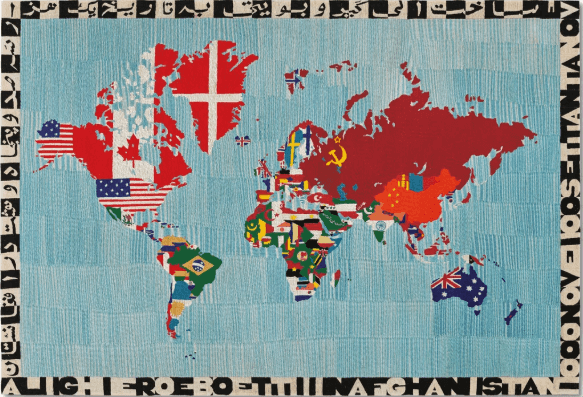
How can we throw sand in the wheels of Israel’s war machine, which continues to rain death and destruction on the Palestinian people? This question rings in the ears of progressive forces around the world as unspeakable horrors are visited on the people of Gaza.
Over the past few weeks, civil society organisations and popular movements across the Mediterranean and beyond have sought a partial answer to that question by tracking and disrupting US military chartered tanker vessels delivering military jet fuel to Israel. Activists, politicians and workers in Palestine, Cyprus, France, Gibraltar, Greece, Italy, Malta, Morocco, Spain, Tunisia, the United Kingdom, the United States and beyond have come together — under the banner of No Harbour for Genocide — to successfully delay military jet fuel deliveries. More disruptions are planned.
US contracted fuel tankers carry military fuel from Valero Energy’s refinery in Corpus Christi, Texas, to Ashkelon, Israel, via Mediterranean ports. A report by Oil Change International and Data Desk revealed that three deliveries of JP-8 military jet fuel took place between October 2023 and March 2024 using the US-flagged tankers Overseas Santorini and Overseas Sun Coast. Each shipment contains around 300,000 barrels of jet fuel, enough for around 12,000 flights of Israel's F-16 and F-35 aircraft. In April 2024, UN Human Rights Council passed a resolution expressing deep concern over the use of jet fuel by Israel to commit violations of international law.
Yet state-operated and privately-owned ports in the Mediterranean Sea, along with NATO and US military bases, have continued to service these oil tankers with fuel, food, supplies and crew changes, enabling them to continue transit fuel shipments to Israeli fighter jet planes uninterrupted.
In response, across July and August, groups working together under the banner of No Harbour for Genocide, including the Progressive International, **have monitored and disrupted the Overseas Santorini, which was carrying military fuel from the US to Israel.
The Overseas Santorini is one of ten ships enrolled in the US Department of Transportation’s Maritime Administration's Tanker Security Program, which provides these “militarily useful” vessels with $6 million in annual stipend to “allow for committed, reliable and loyal fuel transportation to the US military during a time of national crisis.”
Both vessels, in addition to the Overseas Mykonos, are contracted by the US government to deliver military fuel supplied by the Valero Energy Corporation to the Israeli government, which negotiated the purchase of the fuel through the US State Department at a cost of $3 billion in 2020. Valero was granted a contract by the US Defense Logistics Agency Energy (DLA Energy) to provide nearly one billion litres of JP-8 jet fuel, diesel fuel, and unleaded gasoline covering many years' supply to the Israeli Armed Forces.
On its most recent delivery, the Overseas Santorini left Corpus Christi on 15 July 2024 and entered the Mediterranean Sea through the Strait of Gibraltar on 31 July. Through coordinated actions by civil society groups, social movements and dockworkers, the vessel was pressured to abandon its routine ports of call in Algeciras, Spain and Gibraltar. Further pressure was mounted in Malta, forcing the vessel to skip the country and continue directly to the Ashkelon terminal.
The Overseas Santorini's entire voyage was beset with problems created by the transnational mobilisation against its delivery of jet fuel to Israel's genocide. On 25 July, dockworker unions in Spain issued a statement saying they would refuse to service the ship, numerous Spanish politicians spoke out against its docking and hundreds turned out in the city of Algeciras calling on the city to reject what they referred to as “The Ships of Death”.
These actions forced the tanker to reroute to Gibraltar. In response, British MPs wrote to UK Foreign Secretary David Lammy and Fabian Picardo, the chief minister of Gibraltar, calling on them to refuse the ship's request to dock, meanwhile, activists on the ground in Gibraltar mobilised their community to monitor and protest the ship's activities.
Again, the ship was forced to abandon its plans to dock.
Similar campaigns by civil society, activists and politicians — working closely with trade unions and port authorities — were established in every potential harbour along the Overseas Santorini's route. For example, the Progressive Party of Working People (AKEL) in Cyprus called on its government to prevent the vessel from docking or refuelling in Cypriot ports, whilst activists in both Cyprus and Crete mobilising against the ship docking there.
The Overseas Santorini responded by turning off its tracking system for over a week in order to evade further activist disruption. After much disruption, it eventually reached Ashkelon and unloaded its murderous cargo on 8 August, still with its transponder turned off.
Both the Overseas Santorini and the Overseas Sun Coast routinely and deliberately obscure their voyage details and positions. While the Overseas Santorini has been in the dark since it entered the Mediterranean Sea, the Overseas Sun Coast has not revealed its next destination.
Turning off AIS tracking can prevent other vessels from identifying a ship's identity and increases the potential for collisions at sea, and could constitute a breach of maritime law. In the context of the genocide in Palestine, turning off the AIS reduced public accountability in monitoring and intervening in the operations of the vessels, in line with international laws and obligations.
These evasive actions led to the posting of lookout notices throughout the Mediterranean, mobilising activists, fishermen, dockworkers and other boaters to seek out and identify the route of the Overseas Santorini.
Meanwhile, the other military partner vessel — the Overseas Sun Coast — which was docked in the southern French port of Lavera, 30 miles west of Marseilles, departed on 7 August. The vessel had arrived from the US/NATO naval base at Rota, Spain, with its next port of call yet to be declared. Palestinian-solidarity groups, including Comité local des Soulèvements de la terre de Marseille, Urgence Palestine Marseille, and BDS Provence demanded the French government prevent and prohibit the undocking of vessels engaging in the transit of military fuel to Israel from its port; or risk being complicit in genocide. The call urged workers at the port of Lavera to refuse complicity in genocide and the harbouring of the Overseas Sun Coast.
Alongside the UN Human Rights Council statement in April, legal experts have also expressed that in the context of Israeli genocidal practices, states have an obligation to prevent the transit of military fuel through their ports. A letter signed by more than 60 international legal experts was sent to the UN missions of all states bordering the Mediterranean Sea and Gulf of Mexico warning that the transit of military fuel through their territory breaches international law.
The letter underlines the responsibility of states to “refuse permission to either of these vessels to transit within states’ territorial waters or to provision them within ports under states’ jurisdiction… Failure to do so could amount to a breach of international legal obligations and complicity in the international law violations being committed by Israel.”
The experts make clear that Mediterranean ports must act to fulfil their legal obligations under international law and refuse transit and services to vessels directly enabling Israel to commit war crimes, crimes against humanity and other grave breaches of international law. Such actions are consistent with those taken by states and workers to end Apartheid in South Africa, and more recently, in campaigns to identify and sever links between shipping firms and the military junta in Myanmar.
These recent, successful mobilisations are only the first phase in a series of planned global disruptions that will target Valero Energy, the tankers used to transfer military jet fuel, the companies servicing these ships, the ships' insurers and all entities profiting from the murder of Palestinians. As the campaign outlines, as long as corporations and states continue to provide, and profit from, the sales and transport of weapons, ammunition and military fuel, there must be No Harbour for Genocide.
Latest from the Movement
Bangladesh’s crossroads
Bangladesh is at a crossroads following the ouster of Prime Minister Sheikh Hasina. Prime Minister for the last fifteen years, Hasina had overseen a violent crackdown on protestors that killed hundreds.
The labour movement is trying to seize the moment to centre their demands. Last week the Sommilito Garments Sramik Federation, led by PI Council Member Nazma Akter, made a series of public demands on the new caretaker government, led by micro-credit pioneer and western financial institution favourite Mohammad Yunus. The Federation calls for the immediate withdrawal of the 35 criminal cases filed against workers and union leaders during the 2023 minimum wage protests, a new minimum wage that takes into account the rising cost of living, amending the Bangladesh Labor Law 2006 to come into compliance with international labor standards and for the release of 57 migrant Bangladeshi workers, who expressed their solidarity with the student movement in UAE.
To further understand current developments, the Peace and Justice Project, a PI member, hosted a webinar, chaired by PI Council Member Jeremy Corbyn, to hear from Psymhe Wadud, Lecturer at the Department of Law, University of Dhaka, Saeed Naqvi, veteran Indian journalist and commentator, Kalpona Akter, a leading workers’ rights activist and founder of the Bangladesh Center for Workers Solidarity and Fahmida Khatun, Executive Director at the Centre for Policy Dialogue (CPD), a civil society think tank in Bangladesh.
You can watch the webinar here.
Amazon Teamsters win National Labor Relations Board ruling
Amazon delivery drivers represented by Teamsters Local 396 in Palmdale, California won a groundbreaking decision that sets the stage for Amazon delivery drivers across the country to organise with the Teamsters. After more than a year-long investigation, National Labor Relations Board Region 31 (NLRB) found that Amazon is a joint employer of its Delivery Service Partner (DSP) drivers, and therefore has a legal duty to recognise and bargain with the Teamsters Union.
Art of the Week: Rheim Alkadhi is a Berlin-based artist conducting extensive field research on migration, borders, imperialism, and ecology. Interested in the resource extraction that causes displacement, as well as the environmental impacts associated with the material, Alkadhi often employs found heavy-duty, tarpaulins in their work.
This fossil-fuel-derived fabric is commonly used on cross-border industrial vehicles and in the construction of refugee tents. Alkadhi has worked on projects along Europe’s borders and in Palestine, Lebanon, Jordan, and Iraq, the world’s fifth-largest oil and petroleum producer, where the artist lived as a child.



